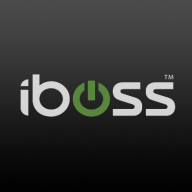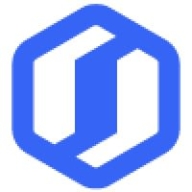


Skyhigh Security and Cisco Umbrella compete in the cloud security domain. Cisco Umbrella seems to have the upper hand due to broader integration capabilities and stronger customer support.
Features: Skyhigh Security offers a robust shadow IT capability, cloud risk registry, and DLP integration, providing comprehensive visibility and risk assessment for cloud services. It supports identifying and mitigating cloud service risks, ensuring data compliance. Cisco Umbrella is renowned for its DNS layer security, web protection, and analytics. Its strong integration capabilities allow organizations to efficiently secure remote users and devices.
Room for Improvement: Skyhigh Security faces challenges such as limited explanations in reports and sluggish performance in the console. Integration with unsanctioned applications and third-party tools can be improved, along with UI and actionable insights. Cisco Umbrella is advised to enhance inline CASB features, simplify policy configurations, and improve support for geofencing and certain integrations. Customers look for a more intuitive UI and better pricing.
Ease of Deployment and Customer Service: Skyhigh Security is deployable across hybrid, on-premises, and public clouds but experiences mixed reviews on technical support. Cisco Umbrella is flexible for deployment across various cloud environments and is praised for its customer support, though resolving complex configurations can improve.
Pricing and ROI: Skyhigh Security offers value-based licensing, especially for large organizations, though it is costly. Cisco Umbrella's tiered subscription model can be expensive but provides ROI advantages when bundled with other Cisco services. Umbrella's licensing is favorable for hybrid IT setups in enterprise environments.
| Product | Market Share (%) |
|---|---|
| Cisco Umbrella | 15.1% |
| iboss | 2.4% |
| Skyhigh Security | 2.7% |
| Other | 79.8% |

| Company Size | Count |
|---|---|
| Small Business | 6 |
| Midsize Enterprise | 6 |
| Large Enterprise | 5 |
| Company Size | Count |
|---|---|
| Small Business | 49 |
| Midsize Enterprise | 30 |
| Large Enterprise | 51 |
| Company Size | Count |
|---|---|
| Small Business | 30 |
| Midsize Enterprise | 4 |
| Large Enterprise | 37 |
Iboss offers a comprehensive cloud-based security platform valued for its scalability and autonomous features, ensuring robust security with easy deployment and management capabilities.
Renowned for its robust security architecture, Iboss integrates seamlessly within diverse networks, delivering efficient granular filtering and advanced content categorization. Its single pane of glass console provides ease of management, allowing rapid scalability suitable for rapidly deploying environments. Operates in BYOD setups due to inline filtering without device installation. Integration with cloud-based applications enhances user control, and features like SASE, SSL inspection, and ChatGPT risk protection stand as highlights. Despite its strengths, users have pointed out areas for enhancement like direct navigation in reports, SSL decryption, and better cloud integration while having room to improve data loss prevention.
What are the most important features of Iboss?The usage of Iboss spans educational institutions, specifically K-12, to enforce internet policies, protect data, and support remote work environments. It provides web filtering and security frameworks to ensure safe browsing. Its platform-as-a-service model offers flexibility for both cloud-based and on-premises requirements, integrating seamlessly to deliver enhanced security features suitable for various deployment needs including zero trust, CASB, and network security for work-from-home setups.
Cisco Umbrella provides fast-deploying DNS-layer security with powerful threat protection capabilities. Trusted by over 30,000 entities, it ranks highly in DNS security and effectively supports secure remote work environments.
Cisco Umbrella offers comprehensive DNS security, web filtering, and ease of use, enhancing network security through robust threat protection and malware prevention. It processes over 600 billion requests daily, making it a leader in its field. The seamless integration with existing infrastructures and cloud-based nature makes it suitable for remote and distributed work environments, ensuring consistent security throughout. Management is streamlined with a single-pane interface that simplifies administration, while in-depth reporting capabilities provide valuable insights for continuous monitoring.
What are the key features of Cisco Umbrella?Cisco Umbrella is widely adopted in industries requiring advanced DNS-level security to counteract malware, phishing, and cyber threats. Its ability to monitor and protect remote and roaming employees makes it an attractive option for sectors highly dependent on cloud services. By managing DNS queries and blocking harmful sites, Cisco Umbrella enhances cybersecurity across networks, providing an added layer of protection for businesses worldwide.
Skyhigh Security protects organizations with cloud-based Zero Trust security solutions that are both data-aware and simple to use. Skyhigh’s Security Service Edge portfolio goes beyond data access and focuses on data use, allowing organizations to collaborate from any device and from anywhere without sacrificing security, while providing the visibility and control required to monitor and mitigate security risks.
The Skyhigh Security Service Edge portfolio includes Skyhigh Secure Web Gateway, Skyhigh Cloud Access Security Broker, Skyhigh Private Access, and Skyhigh Cloud Native Application Protection Platform. All solutions form a fully converged, consolidated platform, and are managed from the same single console.
Skyhigh Security Benefits
Skyhigh Security Features
We monitor all Secure Web Gateways (SWG) reviews to prevent fraudulent reviews and keep review quality high. We do not post reviews by company employees or direct competitors. We validate each review for authenticity via cross-reference with LinkedIn, and personal follow-up with the reviewer when necessary.